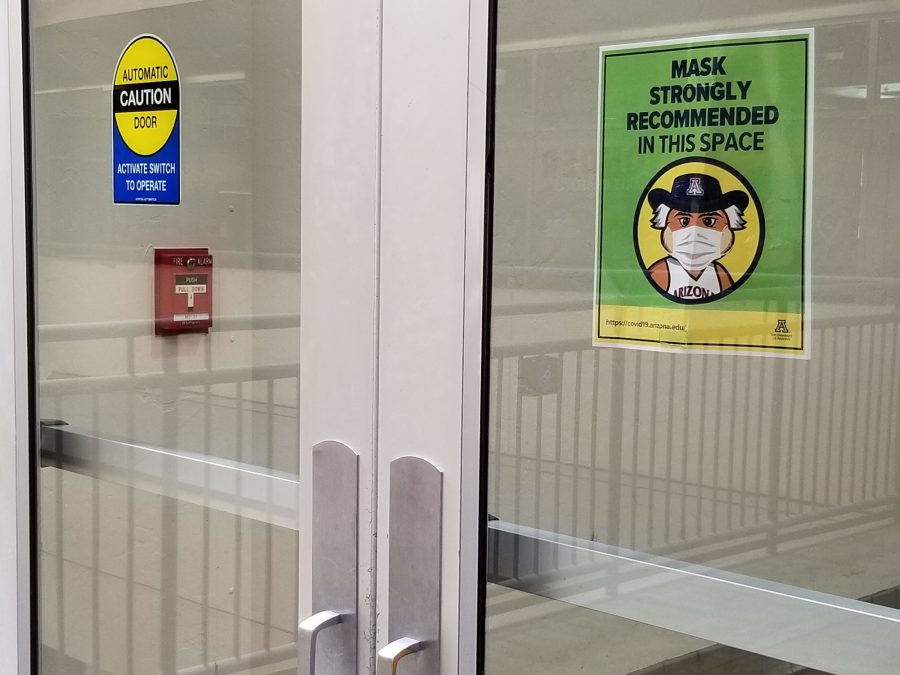Although there is no longer a campus mask mandate at the University of Arizona, there are still some COVID-19 protocols in place this semester, as well as resources you can use to protect yourself against the disease on campus. Here’s what you need to know.
COVID-19 vaccinations are available to students, faculty and staff for free through UA Campus Health Services. UA leadership has called for widespread vaccination since the vaccine became available to the public last year, but has not set a requirement to do so.
Take-away saline gargle testing is still available for free at locations throughout the Tucson campus. Students can pick up and drop off a COVID-19 test sample at a variety of locations, including at the Student Union Memorial Center and Campus Recreation. The drop-off location for symptomatic individuals is at Campus Health.
Unlike last semester, general in-person appointment testing will not be available on campus this semester, with the exception of symptomatic testing and testing for international travel, both of which will be available by appointment through Campus Health.
“If the epidemiology changes and we see something in the community that says, hey, it’s getting worse, we need more testing places, then I know President [Dr. Robert C.] Robbins is willing to ensure that we do what’s necessary to meet the needs of our students, faculty and staff,” said Dr. Richard Carmona, 17th surgeon general of the United States and distinguished laureate professor at the UA.
Carmona also recommended students returning to campus who experience symptoms should get tested through Campus Health.
Masking is not required for the majority of the campus, but masks are still highly encouraged in public indoor spaces. Disposable paper masks will be available in classrooms, office spaces and at the entrances of some buildings.
“We will recommend, when you’re in tight spaces, lots of people close together, probably a good idea to consider masking, especially if you are among our students who are at higher risk,” Carmona said. “So somebody that’s taking medication, say, steroids for asthma, or taking cancer medications that make you immunosuppressed, those people should probably wear a mask as much as they can. That’s what we’re recommending.”
Follow Sean Meixner on Twitter














